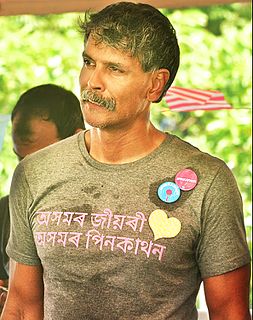A Quote by Harbhajan Singh Yogi
When you do not consciously relate to your body, your mind does not relate consciously to you.
Related Quotes
When you consciously decide to breathe more slowly and deeply, you alert your body to the fact that you want it to behave differently. You are not just changing your breathing pattern, you are making a full-body announcement that you are entering into a different relationship with your mind and your body.
If your struggle with the conflicting parts of yourself is conscious, you are able to choose consciously the response that will create the karma that you desire. You will be able to bring to bear upon your decision an awareness of what lies behind each choice, and the consequences of each choice, and choose accordingly. When you enter into your decision-making dynamic consciously, you insert your will consciously into the creative cycle through which your soul evolves, and you enter consciously into your own evolution.
Your beliefs about yourself and your world create your expectations.
Your expectations determine your attitude.
Your attitude determines your behavior and the way you relate to other people.
And the way you behave toward and relate to other people determines how they relate to and behave toward you.
Do you know how to digest your food? Do you know how to fill your lungs with air? Do you know how to establish, regulate and direct the metabolism of your body -- the assimilation of foodstuff so that it builds muscles, bones and flesh? No, you don't know how consciously, but there is a wisdom within you that does know.
There is a wise being living inside of you. It is your intuitive self. Focus your awareness into a deep place in your body, a place where your "gut feelings" reside. You can communicate with it by silently talking to it, making requests, or asking questions. Then relax, don't think too hard with your mind, and be open to receiving answers. They are usually very simple and relate to the present moment, not the past or the future, and they feel right.
The exact process you use to build courage isn't important. What's important is that you consciously do it. Just as your muscles will atrophy if you don't regularly stress them, your courage will atrophy if you don't consistently challenge yourself to face down your fears. In the absence of this kind of conscious conditioning, you'll automatically become weak in both body and mind. If you aren't regularly exercising your courage, then you are strengthening your fear by default; there is no middle ground.


































